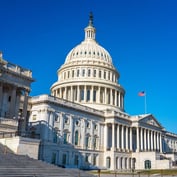(Bloomberg) — Citigroup’s sale of its decade-old stake in a Chinese bank gives the U.S. company a hefty profit. What the state-controlled insurer China Life gets from buying into a debt-laden lender is less clear.
The insurer, the nation’s largest by premiums, said Monday it’s acquiring 23.7 percent of China Guangfa Bank for $3 billion from Citi — whose 20 percent holding is the maximum permitted by a foreign institution — and IBM. That’s almost five times the $600 million Citi paid in 2006.
Holding on so long, rather than selling out of China in the financial crisis as UBS and others did, paid off. Citi got the rights for China’s first solo credit card from a foreign bank, and permission to expand: Revenue from the nation was $100 million in 2006; by last year, it was more than $1 billion.
China Life may be getting a lot of bad loans alongside abundant deposits; it’s hard to tell how much, as Guangfa isn’t publicly traded. What is clearer is that the insurer is paying over the odds: 1.01 times book value for the lender formerly known as Guangdong Development Bank, when most of its peers, weighed down by soured debt, trade at an average of 0.8 times book.
Citi was part of a wave of Western banks, including Goldman Sachs, that bought into China before the financial crisis. Most of Wall Street has since sold out, leaving behind HSBC with around one-fifth of Bank of Communications.
By exiting Bank of China, China Construction Bank and ICBC, the country’s largest, overseas investors raised cash and reduced a growing expense: post-crisis regulations punish lenders that hold minority stakes in financial institutions.
As Chinese banks increasingly become synonymous with bad loans, finding investors in the open market isn’t as easy. Guangfa itself had to abort plans for a Hong Kong IPO.
Enter the state insurers. In December, Deutsche Bank, grappling with investor worries about the strength of capital buffers, said it was selling its stake in Huaxia Bank to PICC, a rival of China Life, for as much as $4 billion. The deal is being done at 1 to 1.1 times Huaxia’s book value. Like Citi, Deutsche Bank will profit, having spent around $1.4 billion for the stake over time.
China Life says it will leverage “collaboration” and “cross-selling” (or so-called bancassurance) from Guangfa. Premiums from bancassurance products can give insurers cash to manage withdrawals and boost scale quickly, as Bloomberg Intelligence analyst Steven Lam points out.
But agency sales dominate the Chinese market. In 2014, agents made up almost half of China’s personal premiums, compared with 39 percent from bancassurance, he said.








 March 01, 2016 at 05:11 AM
March 01, 2016 at 05:11 AM










